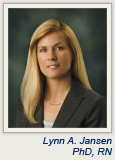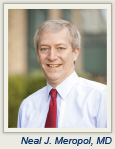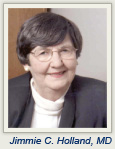Does a patient’s optimistic expectation of reaping a health benefit from participating in phase I and phase II oncology studies, even when he understands that these early trials are not designed to provide direct therapeutic benefit, compromise the informed consent process? And, does that optimistic expectation for benefit merely reflect the patient’s natural disposition to think positively when facing a life-threatening medical situation, or is it the result of a distortion in how that patient is assessing the potential risks and benefits of early-phase clinical trials?
Those are some of the questions researchers sought to answer in their study published in the January/February issue of IRB: Ethics & Human Research.1 The study was funded by an NIH/NCI grant (R21CA131601). The researchers surveyed 72 patients with cancer enrolled in phase I, phase I/II, and phase II trials at St. Vincent’s Medical Center in New York. The study volunteers were given a comparative risk/benefit assessment questionnaire, which asked: Compared to other patients participating in the same cancer research trial you are participating in, what are the chances
- Your cancer will be cured with existing drugs or treatments (not those being tested in the trial)?
- Your cancer will be controlled by the drugs you get in the trial?
- You will experience a health benefit from participating in the trial?
- You will experience a health problem from the drugs being tested in the trial?
- Your cancer will be cured by the drugs you get in the trial?
Therapeutic misconception—a widely recognized problem in which patients enrolled in early-phase clinical trials confuse the purpose of such studies, which is to advance generalized scientific knowledge and not provide individual therapeutic benefit—is an ongoing concern for physicians and medical ethicists. Nevertheless, the majority of the participants in these early trials said they understood the purpose of the trial was to gain research knowledge and not to treat them for their cancer. Despite this understanding, a significant number of respondents had what the researchers call “unrealistic optimism,” or an optimistic bias, when it came to applying that knowledge to their personal situation.
Benign Hopefulness?
The survey results found three areas where a majority of study participants believed they were more likely than other volunteers in the trial to have a positive outcome: their cancer would be controlled with the experimental drug; they would experience a health benefit; and they would not experience adverse health effects from the trial drugs.
 “Over the past 5 years, researchers have started to realize that patients in early-phase clinical trials often do understand the purpose of those trials, so there’s not a therapeutic misunderstanding,” said Lynn A. Jansen, PhD, RN, Madeline Brill Nelson Chair of Ethics Education and Associate Director of the Center for Ethics in Health Care at Oregon Health and Science University in Portland, and lead author of the study. “Still, many of these same patients continue to have high expectations for therapeutic benefit. Some researchers interpret this optimism as ethically benign. They say that we shouldn’t worry about it because patients are just being hopeful and what’s wrong with that? But my colleagues and I thought that maybe there was something more going on. Maybe these patients were under the sway of an optimistic bias. No one had studied that before.”
“Over the past 5 years, researchers have started to realize that patients in early-phase clinical trials often do understand the purpose of those trials, so there’s not a therapeutic misunderstanding,” said Lynn A. Jansen, PhD, RN, Madeline Brill Nelson Chair of Ethics Education and Associate Director of the Center for Ethics in Health Care at Oregon Health and Science University in Portland, and lead author of the study. “Still, many of these same patients continue to have high expectations for therapeutic benefit. Some researchers interpret this optimism as ethically benign. They say that we shouldn’t worry about it because patients are just being hopeful and what’s wrong with that? But my colleagues and I thought that maybe there was something more going on. Maybe these patients were under the sway of an optimistic bias. No one had studied that before.”
While patients may understand the purpose of early-phase oncology trials, the optimistic bias they exhibit, said Dr. Jansen, is problematic because it may adversely affect the informed consent process. “When we talk about optimistic bias, we’re not suggesting that the understanding element has been impaired, but that the bias may compromise other elements of informed consent. It’s either affecting the way in which a person appreciates how the risks and benefits involved in a clinical trial affect him or, because the bias is distorting his judgment in some way, he is not fully voluntarily entering into the trial. That’s a bit more controversial,” said Dr. Jansen.
Improving Informed Consent
The study results are prompting some physicians to consider improving the informed consent process, even though patients seem to understand both the purpose of the early oncology trials and the low likelihood of personal benefit to ensure that there are no bioethical lapses.
 “Through more than a decade of heightened sensitivity and education around the ethical issues in phase I clinical trials, there has definitely been an improvement in the informed consent process, [but] I think that these findings highlight the need to develop better ways to affect the quality of informed consent,” said Neal J. Meropol, MD, the Lester E. Coleman, Jr. Professor of Cancer Research and Therapeutics and Chief, Division of Hematology and Oncology, University Hospitals Case Medical Center and Case Western Reserve University in Cleveland. “Merely asking patients what they think the potential benefit will be may not be an adequate measure of the quality of the informed consent process.” At a minimum, said Dr. Meropol, physicians need to ensure that patients understand the potential benefit—or harm—of early-phase trials from a population frequency standpoint.
“Through more than a decade of heightened sensitivity and education around the ethical issues in phase I clinical trials, there has definitely been an improvement in the informed consent process, [but] I think that these findings highlight the need to develop better ways to affect the quality of informed consent,” said Neal J. Meropol, MD, the Lester E. Coleman, Jr. Professor of Cancer Research and Therapeutics and Chief, Division of Hematology and Oncology, University Hospitals Case Medical Center and Case Western Reserve University in Cleveland. “Merely asking patients what they think the potential benefit will be may not be an adequate measure of the quality of the informed consent process.” At a minimum, said Dr. Meropol, physicians need to ensure that patients understand the potential benefit—or harm—of early-phase trials from a population frequency standpoint.
Dr. Jansen agrees. “When a person is asked, compared to other people participating in the same clinical trial, how likely are you to benefit, he should not be saying ‘above average.’ Or, with respect to experiencing health problems, he should not say ‘below average,’ because… he shouldn’t think that there’s anything about himself that’s special. He should be saying, ‘I’m average. I should expect to experience all of these things as much as any other person in the trial.’ That’s the issue,” said Dr. Jansen.
Is Too Much Hope a Bad Thing?
The difference between being dispositionally optimistic (or having a general optimistic outlook) and being unrealistically optimistic, said Dr. Jansen, is that dispositionally optimistic patients are just hoping for the best, whereas unrealistically optimistic patients tend to distort risk and benefit information and how it applies to them. That distortion is potentially raising an ethical dilemma for physicians.
“From the standpoint of informed consent, the key feature is that the patient understands the facts. What we don’t know at this point is the true meaning of an expression of optimism. In other words, we still don’t know whether it’s a bad thing for patients to be optimistic. Also, what is the role of hope and optimism in the health of people facing life-threatening illnesses, and at what point, if any, is hope and optimism detrimental?” said Dr. Meropol.
Coping Mechanism
 Jimmie C. Holland, MD, Wayne E. Chapman Chair in Psychiatric Oncology and Attending Psychiatrist at Memorial Sloan-Kettering Cancer Center in New York, says being hopeful when facing a critical illness like cancer is a positive coping mechanism, even if patients distort the facts of their treatment and potential outcome.
Jimmie C. Holland, MD, Wayne E. Chapman Chair in Psychiatric Oncology and Attending Psychiatrist at Memorial Sloan-Kettering Cancer Center in New York, says being hopeful when facing a critical illness like cancer is a positive coping mechanism, even if patients distort the facts of their treatment and potential outcome.
“I think that this discrimination between ‘optimism’ and ‘unrealistic optimism’ is not very healthy because it implies that unrealistic optimism is an aberration of normal emotions. But in situations when you’re facing tremendous odds, such reactions are not unusual at all,” said Dr. Holland. “People have a way of changing the information they’re hearing in a way to maintain hope. I don’t think that people live well without some hope.”
According to Dr. Jansen, her optimism study helps researchers clarify the nature of hope. “Hope is not just one thing,” she commented. “When we talk about taking away hope, we first have to step back and ask ourselves, what kind of hope are we talking about? Some optimism, like dispositional optimism, is ethically benign, but other kinds of optimism may be ethically troubling. So when we talk about hope we probably do better to shift our attention to these different types of optimism and think about what motivates people and the ways in which optimism can undermine the processing of risk-benefit information.”
Dr. Meropol also wonders whether patients with high levels of optimism suffer greater psychological problems when they do receive bad news than patients with a more balanced assessment of their situation. To find out, in collaboration with Kevin P. Weinfurt, PhD, Associate Professor in Psychiatry and Behavioral Sciences at Duke University School of Medicine, Dr. Meropol is co-leading a study of patients enrolled in phase I clinical trials to examine their expectations and the impact that initial optimism might have on their psychological well-being when they don’t have a positive treatment outcome.
Balancing Act
Providing patients with the most accurate information about their cancer diagnosis while helping them maintain hope has always been a delicate balancing act for oncologists. And that challenge increases, said Dr. Meropol, when the patient’s disease worsens.
“There comes a point in the care of many patients when the goals of therapy change, and with that change in goals, the targets of hope also have to be adjusted,” said Dr. Meropol. “Oncologists need to be aware that patients will latch on to language that provides hope. We need to be especially balanced in our presentation of the facts in situations where the best possible outcome includes only a small potential magnitude of benefit and perhaps a higher likelihood of side effects. The key is to be aware of the patient’s decision-making calculus on the one hand, and on the other, of how the choice of language affects that patient.” ■
Disclosure: Drs. Holland, Jansen, and Meropol reported no potential conflicts of interest.
SIDEBAR: NY State Law Mandates Discussion on End-of-life Care
Reference
1. Jansen LA, Appelbaum PS, Klein WMP, et al: Unrealistic optimism in early-phase oncology trials. IRB 33:1-8, 2011.

